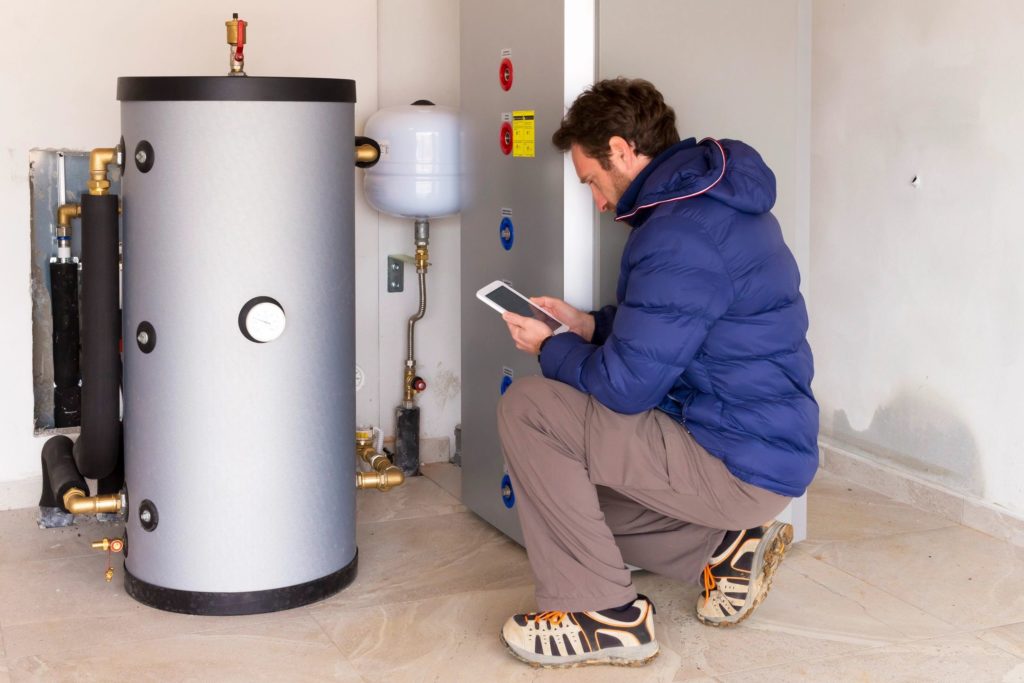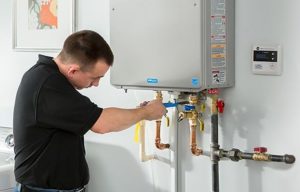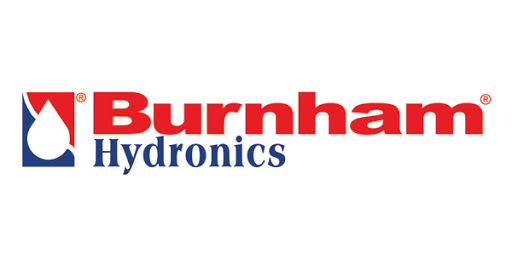What Type of Heater Do You Have

Water Heater Tank
Traditional Tank Water Heater Installation

Tankless Water Heater
Tankless Water Heater Installation
How They Work
Storage tank: Storage tank water heaters typically have a capacity of 30 to 60 gallons, but the most common size is 50 gallons. The capacity you want depends on the size of your household and how much hot water you use (your plumber can help with the calculations). Using natural gas, electricity, fuel oil, or propane, these tanks continuously heat water to keep a full store at the ready. That means you’re paying to have hot water whether you need it or not.
Storage tanks can be 5 feet tall or taller and about 2 feet wide or wider. If your water heater is in the basement, you might not mind the space it takes. But if you don’t have a basement, you may have to stash it in a closet—and that can be a tight fit. And keep in mind that because of recent federal energy regulations, a replacement storage tank may take up more space than your old one, even if it’s the same capacity, because newer ones are required to have more insulation. Tanks that hold less than 55 gallons may be an inch or two larger. But tanks of 55 gallons or more will require even more space, depending on the energy-saving technology they use.
Tankless: As their name implies, tankless, or on-demand water heaters, don’t store water in a tank. Instead they heat water as it passes through the unit, using a heat exchanger to rapidly bring it up to temperature. (They run on electricity, natural gas, or propane.) Heating water only when you need it eliminates the standby energy losses you get with a storage tank.
Whole-house tankless units mount on a wall, saving you floor space and fitting into tight spaces. They vary in size, but average about 2 feet tall and a bit over a foot wide.
Purchase Price and Installation
Storage tank: Tank style water heaters are less expensive than tankless. We paid $570 (electric) and $600 (gas) for the two 50-gallon Rheem tank water heaters we tested, but we have seen tank water heaters priced for less at home improvement stores. Tanks with larger capacity or energy-efficiency upgrades cost more.
Replacing your old storage tank with a new one of the same capacity is a pretty basic plumbing job, and some homeowners do it themselves. But most manufacturers recommend using a certified plumber, and you may need one because tank water heaters have changed, as noted, to meet tighter energy standards. Depending on what your plumber charges per hour, installation can be $600 to $800 if the existing hookups are compatible.
Tankless: Tankless water heaters tend to cost more up front than storage tank models. The nine models in our tests range from $525 to $1,150.
Installation will cost you more—at least $800 to $1,500, according to HomeAdvisor. Gas tankless models may have different venting and gas-supply requirements, meaning you may need to increase the diameter of the pipe from the water heater to the gas meter. And electric tankless models draw so much power—120 to 160 amps—that you may have to upgrade the electrical service to your house to 200 amps or more. Manufacturers recommend that certified electricians or plumbers install tankless water heaters. In fact, many manufacturers require installation by factory-trained professionals to maintain the warranty.
Performance
Storage tank: We included two conventional water heaters in our tests as a control to compare their performance to the tankless units. The gas and the electric storage tank water heaters easily delivered a steady supply of hot water that reached our target temperature of 120° F.
Tankless: We saw a few differences in performance between the gas and electric models. All of the gas units were able to hit our target output temperature of 120° F and have similar minimum flow rates (the amount of running water needed for the heater to kick in). All of the electric models were also able to meet and maintain the set output temperature when the incoming water was 74° F, but two—a Bosch and a Rheem—missed the mark when the incoming water temperature was 58° F. This indicates that electric models may be better suited to areas with warmer groundwater, such as the South.
Energy Use and Efficiency
Storage tank: In our tests, we judged the annual energy consumption cost of the conventional water heaters to be Very Good for the gas model and Fair for the electric. Both rate Good for energy efficiency. We calculated that the annual operating cost for a gas model is $245 (based on an average price of $10.86 per 1,000 cubic feet of natural gas) and the yearly cost of running an electric model is $580 (based on an average electricity rate of $0.132 per KWh).
Tankless: Gas and electric tankless water heaters run more efficiently than the conventional water heaters of the same fuel type. We rated the annual energy consumption cost Excellent for a gas model but only Fair for an electric, but both rate Very Good for energy efficiency. Using the same rates above, the annual operating cost is $195 for a gas tankless and $535 for an electric.
Banta says it’s worth noting that while gas water heaters are less expensive to operate, it’s due to the lower cost of natural gas and not because they’re necessarily more efficient. “Electric models actually run more efficiently,” he says, “but the higher cost of electricity makes them more costly to operate.”
Payback Time
Storage tank: Our payback calculations are based on replacing a 50-gallon storage tank water heater with a tankless water heater, then calculating how much the tankless model costs to operate and how much energy it saves. We used the installation of a tank water heater as the benchmark.
Tankless: We factored in an installation cost of $1,250 for a gas tankless and slightly less, $1,150, for an electric. Using a natural gas rate of $10.86 per 1,000 cubic feet, we calculated that the payback time for converting from a storage tank gas water heater to a gas tankless ranges from 22½ years to 27½ years. For an electric model, assuming energy costs of $0.132 per KWh, the payback time to replace a conventional electric tank with an electric tankless ranges from 12 to 20 years.

Having a non functioning hot water heater in your home is non-negotiable. Call Switch and Fix Plumbing & Heating at (718) 841-9295 in NYC or the 5 Boroughs for expert water heater installation services that always get results.
Want to Upgrade to a Tankless Water Heater? Contact Switch & Fix Today!
0
Toilets Installed
0
Leaky Faucets Fixed
0
Burst Mains Repaired
0
Heating Systems Repaired
Product Brands








